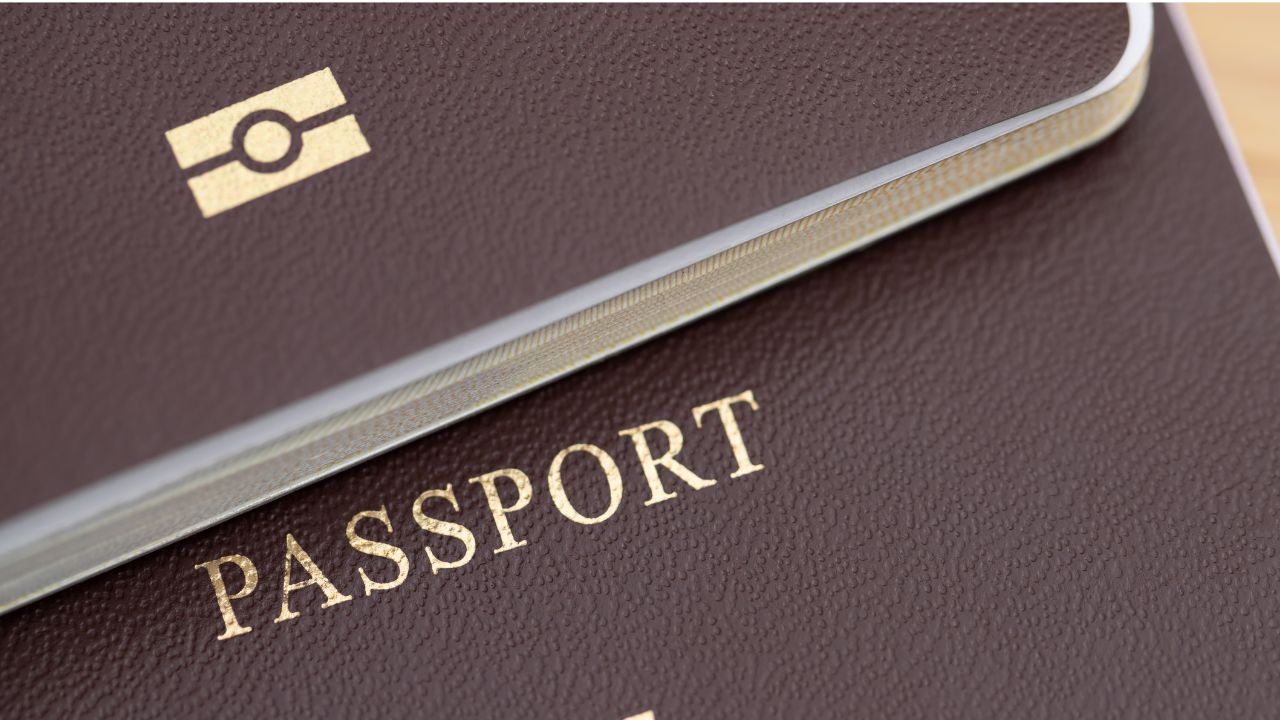Section 6 (2) of the British Nationality Act 1981 provides a route for individuals married to British citizens to acquire British citizenship, immediately after obtaining Indefinite Leave to Remain (ILR) in the UK. This post provides an overview of the application process for applying for British Citizenship by Marriage, including the eligibility criteria, necessary documentation and the step-by-step application process to obtain a British passport.
What are the Requirements for British Citizenship by Marriage?
British citizenship by marriage offers non-British individuals the opportunity to apply for naturalisation as citizens of the United Kingdom through marriage or civil partnership with a British citizen. This pathway is not granted automatically; applicants must fulfil specific legal and procedural requirements. These include demonstrating a genuine and ongoing connection to the UK and adhering to its immigration laws and regulations.
To apply for British citizenship by marriage, applicants must meet specific criteria outlined by the Home Office UKVI. These include:
1. Marriage to a British Citizen
Applicants must be legally married to or in a civil partnership with a British citizen. Proof of the marriage or civil partnership must be provided through a marriage or partnership certificate.
2. Are of sound mind when you apply
To apply for British citizenship, you must be of sound mind at the time of your application. This means you should possess the mental capacity to understand the nature of the application process and the implications of becoming a British citizen.
3. Indefinite Leave to Remain or Settled Status
Before applying, applicants must hold either:
- Indefinite Leave to Remain (ILR): This is a status granted to those who have lived in the UK lawfully for a specified period and are settled in the UK permanently.
- Settled Status under the EU Settlement Scheme: Applicable to EU, EEA, or Swiss nationals who have established their permanent right to reside in the UK.
4. Qualifying Residence Requirements
Applicants must have lived in the UK lawfully for at least three years before the application date.
During this time, they must not have exceeded the allowed absences for Naturalisation, these include:
- Not have spent more than 270 days outside the UK in the three years preceding the application.
- Not have been absent for more than 90 days in the 12 months before the application.
Applicants must ensure that they were physically present in the UK exactly three years before applying.
5. Good Character
The British Nationality Act 1981 specifies a statutory requirement for Applicants to demonstrate good character, meaning they have complied with UK laws. Any criminal convictions, issues with immigration history, or financial irregularities could lead to refusal.
6. English Language Proficiency
Unless exempt, applicants must demonstrate their proficiency in the English language. Applicants must provide evidence through:
- An English language test approved by the Home Office, such as IELTS Life Skills.
- An academic qualification taught or researched in English.
- Proof of being a national of a majority English-speaking country.
7. Passing the Life in the UK Test
Applicants must pass the Life in the UK Test, which assesses knowledge of British culture, history, and values. This test is a critical requirement unless exempt due to age or a qualifying medical condition.
If you were granted Indefinite Leave to Remain (ILR) under the EU Settlement Scheme (EUSS), you would not have been required to meet the Knowledge of Language and Life in the UK requirements as part of your settlement application.
To discuss your application for British Citizenship by Marriage with an experienced adviser from our team, contact us at 0208 757 5751 our use our contact form.
British Citizenship by Marriage Application Process
Applying for British citizenship by marriage involves several steps. Each stage requires careful attention to detail to ensure the application is successful.
1. Gather Supporting Documents
To support the application, the following documents are typically required:
- A valid passport or travel document.
- Biometric residence permit (if applicable).
- Marriage or civil partnership certificate.
- Proof of ILR or Settled Status.
- Evidence of English language proficiency.
- Life in the UK Test pass certificate.
- Proof of residency (e.g., utility bills, tenancy agreements, or council tax bills).
The documents required in your application will depend on your circumstances.
2. Complete the Online Application
The application for British citizenship is completed online via the UK Home Office website. Applicants must carefully fill out all sections, ensuring the information provided is accurate and consistent with supporting documents. You will need two qualified referees to endorse your application.
3. Pay the Application Fee
The naturalisation fee is currently £1,630 and must be paid when applying. This fee is non-refundable, even if the application is unsuccessful.
Applicants should also account for additional mandatory costs, such as biometric enrolment fees for professional translations of documents not in English or Welsh.
4. Provide Biometric Information
Applicants must book an appointment to submit biometric data, including fingerprints and a photograph, at a designated UK Visa and Citizenship Application Services (UKVCAS) centre.
5. Submit Documents for Verification
All required documents must be uploaded online or presented at the UKVCAS centre before attending the biometric appointment.
6. Wait for a Decision
The Home Office typically processes British citizenship applications within six months, though this timeline can vary. Delays may occur if supporting documents are incomplete or insufficient, or if errors are made in the application form. To minimise delays, applicants should promptly respond to any Home Office requests for additional information.
If there are changes to your circumstances during the application process, such as a divorce from your British spouse, it is essential to notify UKVI immediately to ensure the accuracy and validity of your application.
7. Attend a Citizenship Ceremony
If your application for British citizenship is successful, you will be required to attend a citizenship ceremony as the final step in the naturalisation process.
The ceremony typically takes place at your local council within three months of receiving your invitation from the Home Office. During the event, you will make an oath of allegiance (or an affirmation if you prefer not to swear a religious oath) and a pledge of loyalty to His Majesty the King and the United Kingdom.
At the end of the ceremony, you will be presented with a Naturalisation certificate, which serves as proof of your new status. It is essential to keep this certificate safe, as it is required for applying for a British passport and may be needed for future purposes.
8. Apply for a British passport
Once your British citizenship application is approved and you have attended your citizenship ceremony, you can apply for a British passport. This step is not mandatory, but obtaining a British passport is the most convenient way to prove your citizenship and enjoy the benefits of your new status, such as visa-free travel to numerous countries.
To apply, you will need to complete the online or paper passport application form and provide the necessary documentation, including:
- Your certificate of Naturalisation, issued after the ceremony.
- Proof of identity, such as a previous passport or photo ID.
- A recent passport-sized photograph that meets UK passport photo standards.
Once your British passport is issued, you must use it to enter the UK. This ensures that your status as a British citizen is correctly recognized at the border and avoids potential complications with immigration control. For those with dual nationality, it is permissible to use another passport for international travel, but your British passport must always be presented when returning to the UK.
If you do not want a British passport you can apply for a certificate of entitlement instead.
Common Challenges for British Citizenship by Marriage
Some common mistakes when applying for British Citizenship by Marriage that may lead to a refusal include:
1. Residency Gaps
Spending too much time outside the UK may lead to ineligibility. Applicants should meticulously calculate their absences and provide explanations or evidence for any extended stays abroad.
2. Document Discrepancies
Inconsistent or incorrect information across documents can delay or jeopardise the application. Double-check all documents and seek professional advice if discrepancies exist.
3. Good Character Concerns
Minor infractions or unresolved issues with the Home Office can raise red flags. Applicants should resolve any pending matters and, if necessary, consult an immigration advisor.
Benefits of British Citizenship by Marriage
Becoming a British citizen offers several advantages, including:
- Right to Reside: Full access to live, work, and study in the UK without restrictions.
- Travel Freedom: Access to visa-free travel in over 180 countries with a British passport.
- Political Rights: The ability to vote and stand for public office in the UK.
- Stability and Security: Permanent status in the UK, with protection from deportation or loss of residency.
How Whytecroft Ford can help?
Navigating the complexities of a British citizenship application can be daunting, particularly when preparing documents, meeting residency criteria, and addressing potential challenges. Professional advice can ensure the application is thorough, accurate, and aligned with Home Office requirements.
Our experienced team at Whytecroft Ford specialises in assisting clients with British citizenship applications. From initial eligibility assessments to document preparation and application submission, we offer tailored support every step of the way. Contact us today to learn how we can help you achieve your goal of becoming a British citizen.
FAQs on British Citizenship by Marriage
Can I apply for British citizenship by marriage if I’m separated from my British spouse?
No, you must be legally married to or in a civil partnership with your British spouse at the time of application. If you are separated or your marriage has ended, you will no longer qualify for this route and may need to explore other pathways to naturalisation.
Do I need to provide proof of my relationship with my British spouse beyond the marriage certificate?
In most cases, a valid marriage or civil partnership certificate suffices. However, the Home Office may request additional evidence if there are concerns about the authenticity of the relationship, especially in cases involving prior immigration applications.
What happens if my application is refused? Can I appeal?
If your application is refused, you will typically not have the right to appeal, but you can request a review or submit a new application if circumstances change. It’s advisable to consult an immigration expert to address the reasons for refusal and strengthen your case.
Does British citizenship affect my current nationality?
The UK allows dual citizenship, so you can retain your original nationality while becoming a British citizen. However, some countries do not permit dual citizenship, so it’s essential to check the laws of your home country before applying.
Can I include my children in the application for British citizenship by marriage?
Children can be included in your naturalisation application. However, they may qualify for registration as British citizens, depending on factors such as your citizenship status, their birth circumstances, and the duration of your stay in the UK.






